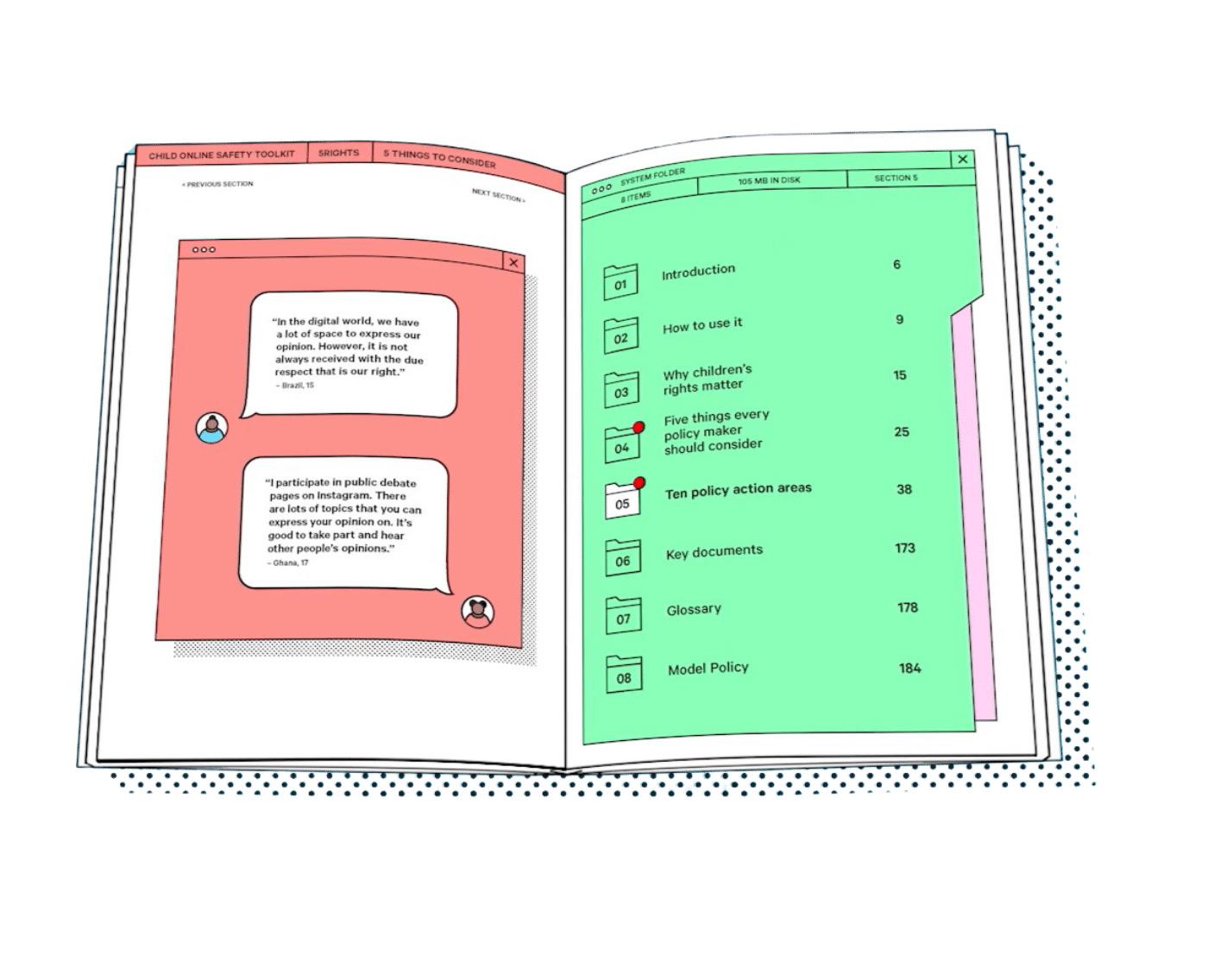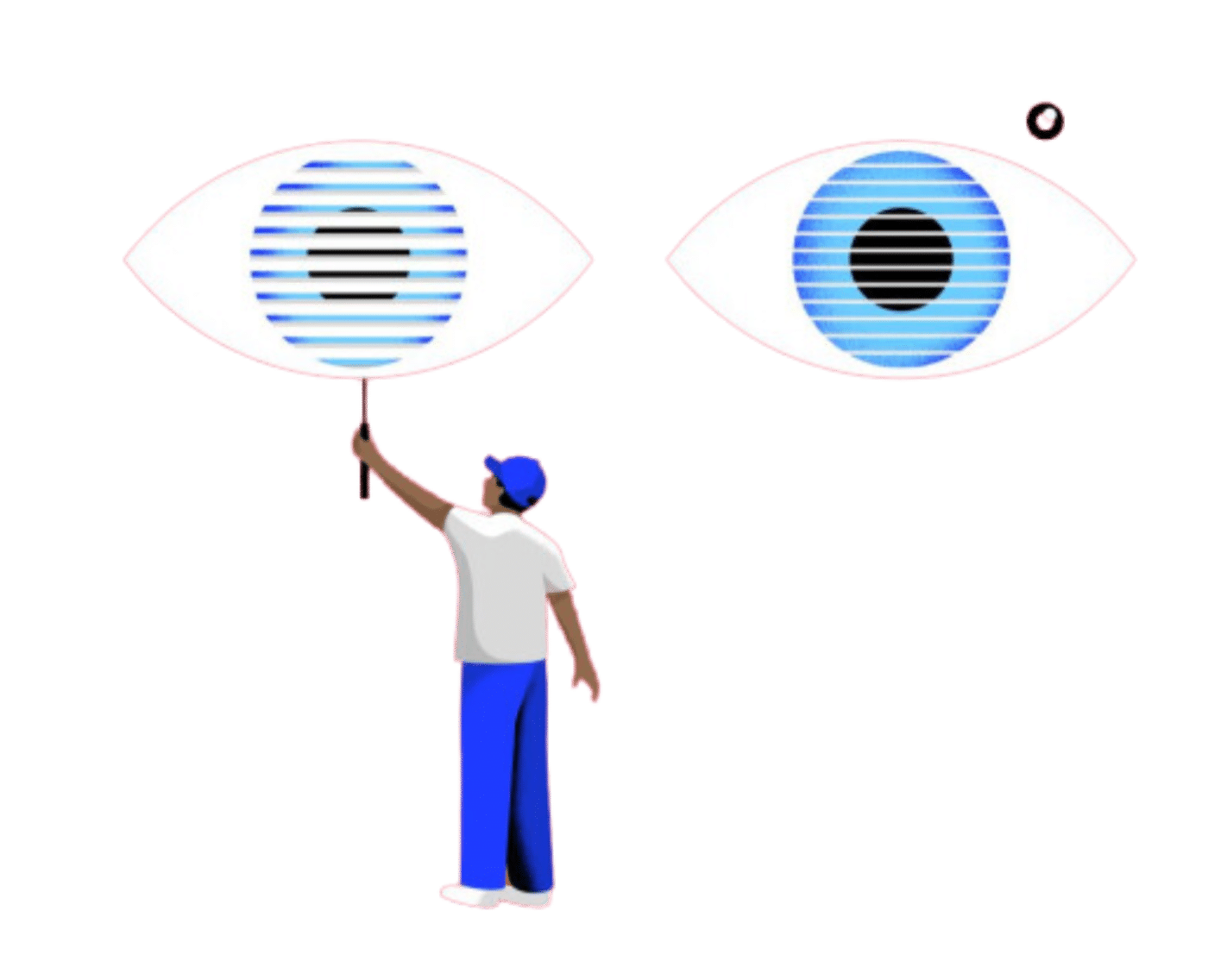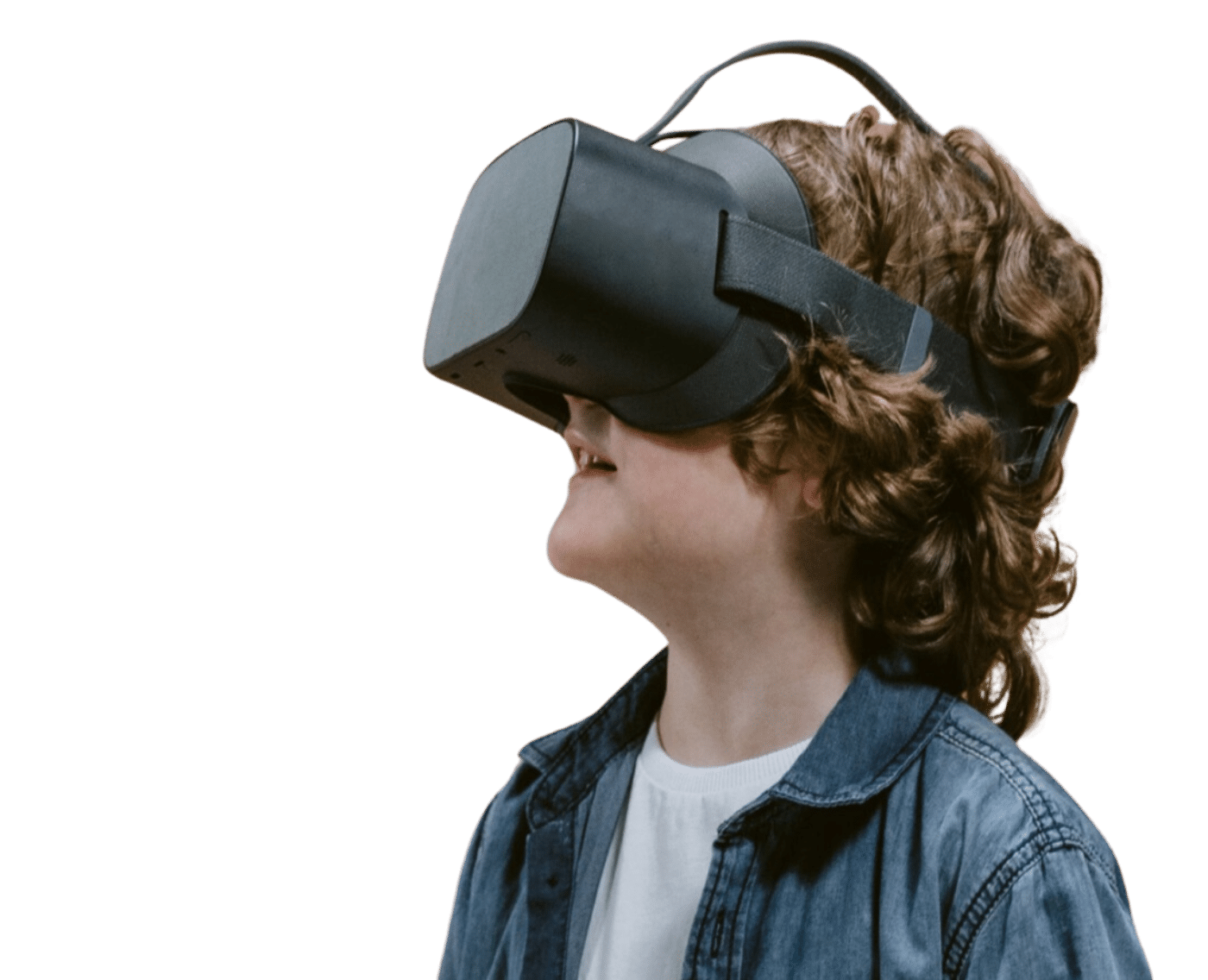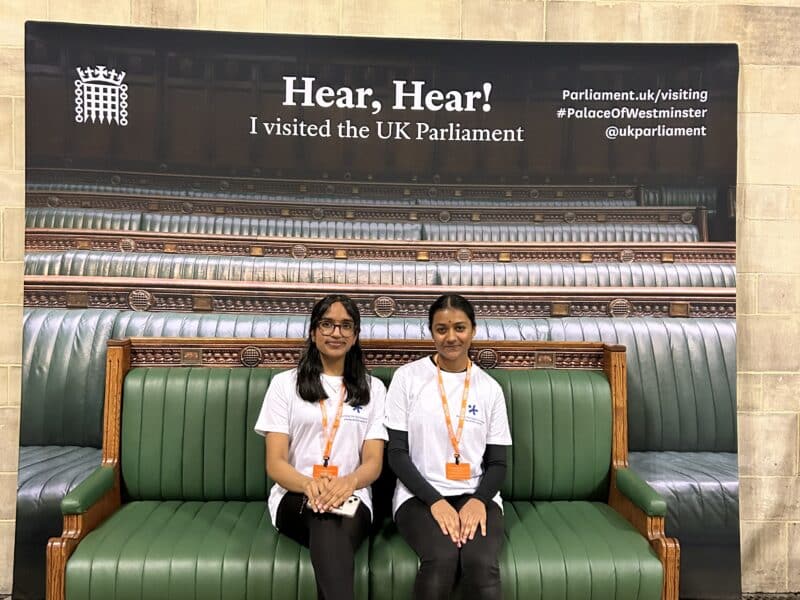A strong global framework
5Rights played a pivotal role in the development of General comment No. 25, which sets out how the Convention on the Rights of the Child applies in the digital environment. Leading broad coalitions and working directly with policy-makers, we shape numerous global and regional multilateral legal and political frameworks, strategies and tools to implement robust and consistent global norms.
“Legislation and binding guidelines are needed to create a secure context where children can learn how to use technology without fear”
Lucia, 14
“Everyone should know and understand what of their own data is out there, how it’s used and how to protect it”
Annisa, 15
Enforceable regulation
5Rights has worked with legislators and regulators around the world to develop, pass and implement comprehensive protections for children’s privacy and safety online. The groundbreaking UK Age Appropriate Design Code has inspired similar legislation from Jakarta to California, while its core principles have been integrated in broader laws with global impact such as the EU’s Digital Services Act and AI Act.
Institutional capacity-building
To support systemic, exponential and sustainable change, 5Rights invests heavily in capacity-building, supporting government institutions as well as civil society around the world, and in particular in the Global South.
“In a perfect digital world, I envision an environment that doesn’t merely prohibit children and youth as a quick fix, but a safe digital world”
Eric, 19
In focus
View all



Our work around the world
5Rights is globally active. In addition to our US, UK, Europe and Global Multilateral programmes, we run projects across Asia, Africa, Latin and North America.

United Kingdom
The UK, where 5Rights was founded, has pioneered digital regulation for children. With the world’s first enforceable Age Appropriate Design Code signed into law in 2020, complemented by the Online Safety Act in 2023, it is a key testing ground for policy innovation, and implementation.

European Union
The EU is a global normative and regulatory powerhouse. Its data protection regulation, the GDPR, underpins the Age Appropriate Design Code, whereas the Digital Services Act and AI Act have the potential to fundamentally reshape digital design norms for children.

United States
American companies created the internet as children know it today, and the US still hosts many of the world’s most innovative and powerful tech companies. Strengthening US regulation and working with the country’s dynamic industry ecosystem are critical to driving change for children everywhere.

Global
Children everywhere use the same tech, face the same problems, and have the same rights. A global, equitable, solution is needed. From the UN to the African Union, from Jackarta to Buenos Aires and Ottawa, a coherent body of global standards and best practices is taking shape with our support.
Latest
View all
UK Government takes aim at manipulative digital design practices
The UK Government has announced new measures to strengthen online protections for children and young people, with a clear focus on tackling addictive and harmful digital design practices.

5Rights Youth Ambassadors give evidence to UK Parliamentarians on AI
5Rights Youth Ambassadors Eashaa and Niranjana, represented 5Rights at the UK Parliament this week, giving evidence to an inquiry of the All-Party Parliamentary Group (APPG) for Online Safety examining the impact of artificial intelligence on children.

Social media–style design is already in the classroom, new research finds
As Parliament debates banning children from social media, new research reveals that many of the same harmful design features are already embedded in the technology children use every day at school, raising concerns for children’s privacy, wellbeing and exposure to commercial exploitation in the classroom.

TikTok’s addictive design preliminarily found in breach of the Digital Services Act: a positive step towards protection of minors on online platforms
5Rights Foundation has been advocating for swift and robust enforcement of the DSA to protect minors online since its entry into force. The preliminary finding on TikTok addictive design is a long-awaited step to enforce European rules and finally deliver for children’s safety online.

